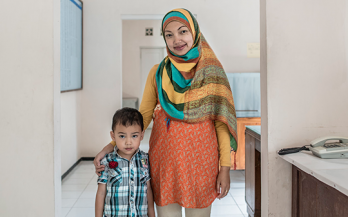Nutritional supplements are an important source of complementary food for young children, since they may either complement or substitute nutrients obtained from other food sources.
Vitamin D deficiency in children remains a global concern. Although literature exists on the Vitamin D status and its risk factors among children in the Middle East, findings have yielded mixed results, and large, representative community studies are lacking.
Researchers acknowledge that the majority of nationally-representative data on Vitamin A supplementation (VAS) status is outdated. This study examined data from 82 countries implementing VAS programs, identified other VA programs, and assessed the recentness of national VA deficiency data.
The purpose of this study was to examine the potential contribution of fortification of vegetable oils with vitamin A in Indonesia and Malaysia to increasing vitamin A consumption in these two countries and in countries to which oil is exported.
The aim of this study was to assess oil consumption, vitamin A intake and retinol status before and a year after the fortification of unbranded palm oil with retinyl palmitate.
Fortification of vegetable oil with vitamin A is considered a cost-effective and simple to implement strategy, but the stability of vitamin A remains a limiting factor. The objective of this study was to estimate vitamin A losses in oil with different chemical characteristics.
Despite considerable progress made in the past decade through salt iodization programs, over 2 billion people worldwide still have inadequate iodine intake. This study validates a newly developed device that quantitatively measures the content of potassium iodate in salt in a simple, safe, and rapid way.
This supplement contributed to the growing area of implementation research, illustrating the value of systematic research undertaken for the purpose of supporting the design of nutrition interventions that are appropriate for the specific populations in which they are undertaken.
Understanding the context of infant and young child feeding (IYCF) is recognized as essential for designing appropriate complementary feeding interventions. The objective was to study household IYCF behaviors in 2 districts in southern and northern Ghana to identify opportunities to improve existing nutrition programs.
‘Implementation research in nutrition’ is an emerging area of study aimed at building evidence‐based knowledge and sound theory to design and implement programs that will effectively deliver nutrition interventions. This paper describes some of the basic features of ethnography and illustrates its applications in components of the implementation process.










